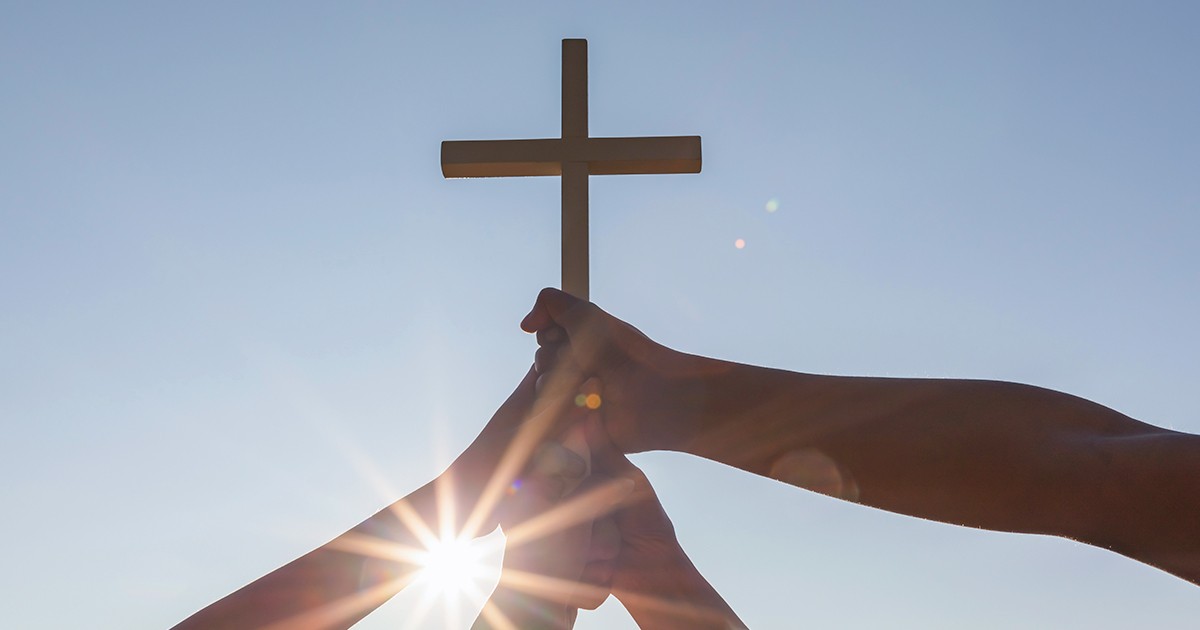“We believe in one holy catholic and apostolic Church.”—Nicene Creed
During this past year, Dr. James Read and I have explored the Nicene Creed in this six-part series for Salvationist. This confession of faith has its origins with the Roman Emperor Constantine in the year 325. However, 2025 is not 325. The Roman Empire no longer dominates the world. The Christian faith no longer dominates the culture in which we live. And yet we believe that this creed has an important role to play in our context.
We have noted that the emphasis in the Nicene Creed falls on its confession of one God: Father, Son and Holy Spirit. But as the creed moves toward its conclusion, it takes a surprising turn: “We believe in one holy catholic and apostolic Church.” For many, this shift from God to the church is problematic. Why clutter a confession of faith in God with confession in an all-too-human church? And yet, this expression of belief is important, especially for this moment in our world. Let’s consider these four marks of the church.
We believe in one church. One? In what sense? Given the multiplicity and fragmentation of churches, how can we speak of the church as one? First, we should keep in mind that shared beliefs help to create community. But beliefs need to be lived out. We sometimes say of sports, “The team played as one.” This doesn’t mean the team played flawlessly or without tension. It does, however, imply that they helped each other overcome mistakes and inadequacies. Over the course of the season, they learned to play as one. The Christian faith is a team faith, expressing God’s love to the world, as one church.
We believe in a holy church. Holy? A church plagued by scandals and a lack of integrity? General Frederick Coutts described holiness as “the unfolding of Christ’s own character in the life of the believer.” And the Nicene Creed dares to suggest that Christ’s character can take shape in the life of the whole church, not simply the individual believer. Athletes speak of team character. It is shaped by common purpose, by sacrifice and humility in achieving that purpose. Collectively we are called to be a transforming influence in our world through Christ’s holy character, a holy church.
We believe in a catholic church. Spelled with a small “c,” the word catholic means “throughout the whole.” This mark of the church refers to the embrace of difference throughout the whole church. Our world has its invisible boundaries that divide races, ethnicities, genders, political loyalties and social class. In such a world the church is called to be truly catholic, to embrace differences. Canada is one nation where differences are evident. And The Salvation Army in this nation, and worldwide, is called to be catholic for the sake of the world.
We believe in an apostolic church. Our world yearns for a story that will help to make sense of the whole, to give life meaning. This phrase in the creed reminds us that we are grounded in such a story, the biblical story. This creed, and our Salvation Army doctrines, point us to God’s story and invite us to live inside its life. We do this for our sake, and for the sake of our world. To be an apostolic church means living faithfully within the story that defines us.
It has been said that ecumenical creeds and Salvation Army doctrines are like seatbelts because they serve no purpose unless they are used. God is calling us to take these confessions of faith and discern how they can guide our strategic plans, and the values we hold; to imagine how these core beliefs shape our worship, our mission and our life together. The Nicene Creed and Salvation Army doctrines are essential convictions, like essential workers during a pandemic. There is much room and need for other convictions, questions and conversations. But these core convictions create unity; they help to shape us in the image of Christ; they help us understand what is essential so that we learn to embrace difference; they point us to God’s story of an immense salvation. We believe!
MAJOR RAY HARRIS is a retired Salvation Army officer and author of Convictions Matter. His co-author of this series, Dr. James Read, was the executive director of The Salvation Army Ethics Centre for 27 years and was a member of the International Theological Council. Major Harris and Dr. Read attend Heritage Park Temple in Winnipeg.
We Believe is a six-part series on the Nicene Creed, which marks its 1,700th anniversary in 2025. This is the last article in the series. Read Part 1. Part 2. Part 3. Part 4. Part 5.
Photo: AungMyo/stock.Adobe.com
This story is from:










Leave a Comment